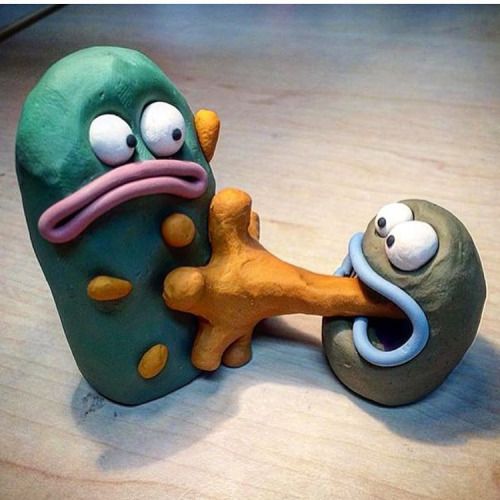During the morning I researched through some stop motion and plasticine artists.
- Rich Webber – the director of Purple and Brown, Shawn the sheep and Wallace and Gromit. He works with Aardman animations and in one interview he gave he stated that their focus on animating usually lies upon the detail and expression of the eyes and eyebrows. I also found his Instagram page that can be helpful for inspiration

- Corky Quakenbush – a worker in American motion pictures and TV series in a wide variety of different jobs, including camera work, writing, and production. One of his specialities is in stop-motion animation. They produced “Rudolph the red nose reindeer”.

- Charley Bower – One of the stop-motion pioneers. He made a short film with a bird eating metal. The animation is not so smooth in some parts so it allowed me to observe exactly how he moved some objects.
- Lou Bunin – Puppeteer Lou Bunin created one of the first stop motion puppets using wire armatures and his own rubber formula. Bunin went on to produce a feature-length film version of Alive in wonderland with a live-action Alice and stop motion puppets portraying all the rest of the characters.

- Di Conway – Wellington sculptress Di Conway is widely known for her ‘fat-lady’ sculptures created in her converted “shed” at her home. It is through these quirky, humorous figures and the underlying social commentaries about life, and empowerment of women that they embody, that Di has established a cult following in Wellington. Creating works in both bronze and clay. This artist is not an animator but I found her work really interesting because her sculptures all like slightly cartoony.

This research helped me visualising different methods and approaches to clay modelling and stop motion animation.


